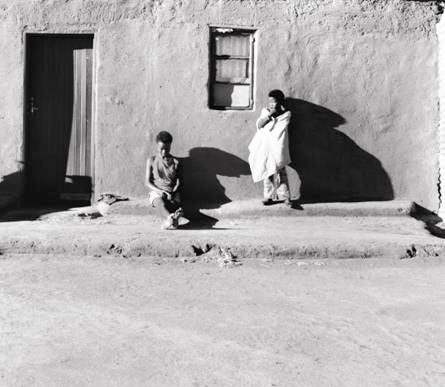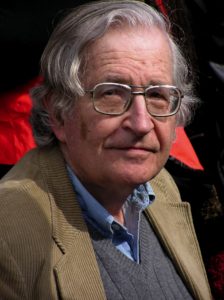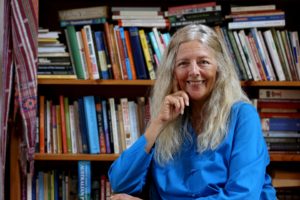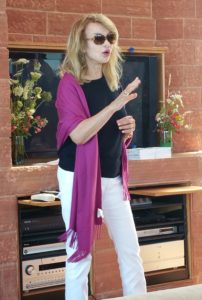Mijn generatie, tien jaar later ~ Literatuur
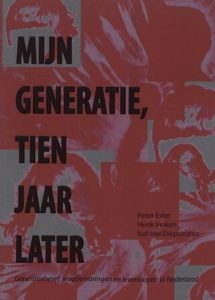 Aalberts, C. (2006). Aantrekkelijke politiek? Een onderzoek naar jongeren en popularisering van politiek. Apeldoorn: Het Spinhuis.
Aalberts, C. (2006). Aantrekkelijke politiek? Een onderzoek naar jongeren en popularisering van politiek. Apeldoorn: Het Spinhuis.
Aalst, H. van (2001). Van marktwerking in het onderwijs naar leren in de markt: Naar microkeuzen en netwerkleren. In M. van Duyck (Red.), Onderwijs in de markt (pp. 313-336). Den Haag: Onderwijsraad.
Abma, R. (1990). Jeugd en tegencultuur. Een theoretische verkenning. Nijmegen: SUN.
Akker, P. van den, I. Diepstraten & H. Vinken (1997). Jongeren en risicogedrag. Een inventarisatie van theorie en onderzoek over invloeden van gezin en directe omgeving, school en werk, jeugdcultuur, vrije tijd en persoonlijkheid. Tilburg: IVA.
Alheit, P. (1994). The biographical question as a challenge to adult education. National Review of Education, 40, 283-298.
Alheit, P. (1995). “Biographizität” als Lernpotential. In H. Krüger & W. Marotzki (Hg.), Erziehungswissenschaftliche Biographieforschung (pp. 276-307). Opladen: Leske + Budrich.
Alheit, P. & B. Dausien (2002). The double face of lifelong learning. Studies in the Education of Adults, 34, 1, 3-22.
Alles begint met Nix (1997). De ik’s van Nix. Amsterdam: Boom.
Amato, P.R. & A. Booth (1997). A generation at risk. Growing up in an era of family upheaval. Cambridge: Harvard University Press.
Ancona, H. D’ & T. Beumer (1987). Marginalisering of mobilisering? De minstbedeelden in de afbrokkelende verzorgingsstaat. In P. Fortuyn & S. Stuurman (Red.), Socialisten in no nonsense-tijd (pp. 99-115). Nijmegen: SUN.
Arnett, J. (2004). Emerging adulthood. The winding road from the late teens through the twenties. New York: Oxford University Press.
Atkinson, J.S. (1984). Flexibility, uncertainty and manpower management. Brighton: Institute of Manpower Studies (IMS report no. 89).
Baird, S. (1999). What’s wrong with boys? Adressing the underachievement discussion. www.generationyouthissues.fsnet.co.uk/education/what’s wrong with boys.htm.
Baltes, P.B. & M.M. Baltes (1990). Successful aging: perspectives from the behavioral sciences. Cambridge: Cambridge University Press.
Beekers, W.P. (2005). Mao in de polder. Een historisch-sociologische benadering van het Nederlandse maoïsme 1964-1978. Amsterdam: Vrije Universiteit (doctoraal scriptie).
Beck, U. (1986). Risikogesellschaft. Auf dem Weg in eine andere Moderne. Frankfurt am Main: Suhrkamp.
Beck, U. & E. Beck-Gernsheim (1994). Riskante Freiheiten. Frankfurt am Main: Suhrkamp.
Beck, U., A. Giddens & S. Lash (1994). Reflexive modernization. Stanford: Stanford University Press.
Becker, H.A. (Ed.) (1990). Life histories and generations. Utrecht: ISOR.
Becker, H.A. (1992). Generaties en hun kansen. Amsterdam: Meulenhoff.
Becker, H.A. (1995). Onderzoek naar generaties. Een reactie op Dekker en Ester. Acta Politica, 30, 351-354.
Becker, H.A. (1997). De toekomst van de verloren generatie. Amsterdam: Meulenhoff. Read more
The Purchase Of The Farm Braklaagte By The Bahurutshe ba ga Moiloa – Whose Land Is It Anyway? (1908-1935)
Braklaagte, registered as farm number 168 on the Transvaal farm register (the number was changed in the second half of the twentieth century to JP-90), was 3,152 morgen and 529 square rood in size, which is equal to 2,700.5441 ha in metric measurements.
The first title deed to the farm was registered in October 1874 in the name of Diederik Jacobus Coetzee. Ownership of the farm was transferred several times to other white farmers. W.M. Beverley was the last white owner before the farm was bought by the Bahurutshe ba ga Moiloa.
In 1906 a dispute arose in the Bahurutshe ba ga Moiloa tribe of Dinokana in Moiloa’s Reserve between Abraham Pogiso Moiloa and Israel Keobusitse Moiloa. When Abraham’s father, Ikalafeng, had died in 1893 he was a minor and Israel, Ikalafeng’s younger brother, would for a number of years act as regent. When Israel had to hand over the bokgosi (chieftainship) to Abraham in 1906 differences arose between them. A section of the tribe, led by Israel, moved eastward and settled at Leeuwfontein.
Already in 1876 Leeuwfontein had been bought for the tribe by chief Sebogodi Moiloa of Dinokana at the price of 200 head of large cattle, equivalent to about £1,000, but the transfer of the farm to the tribe had not yet been effected. ‘Quite an exodus’ of the Bahurutshe ba ga Moiloa took place from Dinokana to Leeuwfontein and by 1907 the majority of Israel’s adherents had settled there.
Read more
From the Web – The World Atlas of Language Structures
The World Atlas of Language Structures (WALS) is a large database of structural (phonological, grammatical, lexical) properties of languages gathered from descriptive materials (such as reference grammars) by a team of 55 authors (many of them the leading authorities on the subject).
The first version of WALS was published as a book with CD-ROM in 2005 by Oxford University Press. The first online version was published in April 2008. Both are superseeded by the current online version, published in April 2011.
WALS Online is a joint effort of the Max Planck Institute for Evolutionary Anthropology and the Max Planck Digital Library.
It is a separate publication, edited by Dryer, Matthew S. & Haspelmath, Martin (Munich: Max Planck Digital Library, 2011)
ISBN: 978-3-9813099-1-1. The main programmer is Robert Forkel.
Read more: http://wals.info
Trump In The White House: An Interview With Noam Chomsky
On November 8, 2016, Donald Trump managed to pull the biggest upset in US politics by tapping successfully into the anger of white voters and appealing to the lowest inclinations of people in a manner that would have probably impressed Nazi propagandist Joseph Goebbels himself.
But what exactly does Trump’s victory mean, and what can one expect from this megalomaniac when he takes over the reins of power on January 20, 2017? What is Trump’s political ideology, if any, and is “Trumpism” a movement? Will US foreign policy be any different under a Trump administration?
Some years ago, public intellectual Noam Chomsky warned that the political climate in the US was ripe for the rise of an authoritarian figure. Now, he shares his thoughts on the aftermath of this election, the moribund state of the US political system and why Trump is a real threat to the world and the planet in general.
C.J. Polychroniou for Truthout: Noam, the unthinkable has happened: In contrast to all forecasts, Donald Trump scored a decisive victory over Hillary Clinton, and the man that Michael Moore described as a “wretched, ignorant, dangerous part-time clown and full-time sociopath” will be the next president of the United States. In your view, what were the deciding factors that led American voters to produce the biggest upset in the history of US politics?
Noam Chomsky: Before turning to this question, I think it is important to spend a few moments pondering just what happened on November 8, a date that might turn out to be one of the most important in human history, depending on how we react.
No exaggeration.
The most important news of November 8 was barely noted, a fact of some significance in itself.
On November 8, the World Meteorological Organization (WMO) delivered a report at the international conference on climate change in Morocco (COP22) which was called in order to carry forward the Paris agreement of COP21. The WMO reported that the past five years were the hottest on record. It reported rising sea levels, soon to increase as a result of the unexpectedly rapid melting of polar ice, most ominously the huge Antarctic glaciers. Already, Arctic sea ice over the past five years is 28 percent below the average of the previous 29 years, not only raising sea levels, but also reducing the cooling effect of polar ice reflection of solar rays, thereby accelerating the grim effects of global warming. The WMO reported further that temperatures are approaching dangerously close to the goal established by COP21, along with other dire reports and forecasts.
Another event took place on November 8, which also may turn out to be of unusual historical significance for reasons that, once again, were barely noted.
On November 8, the most powerful country in world history, which will set its stamp on what comes next, had an election. The outcome placed total control of the government — executive, Congress, the Supreme Court — in the hands of the Republican Party, which has become the most dangerous organization in world history.
Apart from the last phrase, all of this is uncontroversial. The last phrase may seem outlandish, even outrageous. But is it? The facts suggest otherwise. The Party is dedicated to racing as rapidly as possible to destruction of organized human life. There is no historical precedent for such a stand.
Is this an exaggeration? Consider what we have just been witnessing.
During the Republican primaries, every candidate denied that what is happening is happening — with the exception of the sensible moderates, like Jeb Bush, who said it’s all uncertain, but we don’t have to do anything because we’re producing more natural gas, thanks to fracking. Or John Kasich, who agreed that global warming is taking place, but added that “we are going to burn [coal] in Ohio and we are not going to apologize for it.”
The winning candidate, now the president-elect, calls for rapid increase in use of fossil fuels, including coal; dismantling of regulations; rejection of help to developing countries that are seeking to move to sustainable energy; and in general, racing to the cliff as fast as possible. Read more
Charlie Chaplin ~ The Great Dictator
Is Globalization Responsible For Climate Change? An Interview With Graciela Chichilnisky And Helena Norberg-Hodge
What is the connection between economic globalization and climate change? Is globalization reversible? Can climate change be reversed? If so, how? In the interview that follows, two leading voices in the struggle for a safe planet and a sustainable future, Graciela Chichilnisky and Helena Norberg-Hodge, address these questions from their own unique perspectives and offer critical insights on how we can avert a climate change catastrophe.
A world renowned economist and mathematician, Graciela Chichilnisky is the architect of the Kyoto Protocol carbon market and cofounder and CEO of Global Thermostat, a disruptive, carbon negative technology company based in the Silicon Valley that removes carbon dioxide from the air. She is Professor of Economics and of Statistics at Columbia University and Visiting Professor of Economics at Stanford University. Helena Norberg-Hodge is the founder and director of Local Futures, a pioneer of the “new economics” movement. She is the producer and co-director of the award winning documentary “The Economics of Happiness” and recipient of the Goi Peace Award.
J. Polychroniou and Marcus Rolle: Climate change is the most daunting problem facing humanity today, and globalization seems to be accelerating it. In fact, the effects of climate change are moving faster than predicted as free trade agreements are proliferating, multinational corporations move their operations to developing countries in order to avoid stricter environmental rules at the home country, and export-oriented industrial agriculture has replaced local farming. Do you agree with the view that economic globalization bears responsibility for climate change?
Helena Norberg-Hodge: Absolutely. Globalization – or the deregulation of global trade and finance – has direct consequences for the climate. It promotes unnecessary long-distance transportation of goods, rampant consumerism, biological monocultures, energy-intensive technology use, and mass urbanization – which leads to ever-increasing fossil fuel consumption. It is also worth noting that a 2013 study found that two-thirds of the fossil fuels that have been burned over the last 150 years were burned by just 90 corporate entities, including companies such as Texaco and ExxonMobil.
With the help of corporate-funded think-tanks, there is a commonly-held belief that individual citizens’ consumption patterns, rather than the systemic changes in production because of globalization are to blame for climate change. This is a very narrow framing of the climate crisis, but it’s one that has gained a lot of credence in the media due to the support of Al Gore and others. Meanwhile, it’s becoming increasingly clear every day that there are inherent and predictable connections between the deregulation of transnational corporations and the climate crisis. And people are beginning to notice those connections.
So reversing the trend towards further globalization needs to be central to the climate movement.
Graciela Chichilnisky: Yes: globalization was led by the Breton Woods institutions that were founded after WWII to encourage and enforce a pattern of international trade duplicating colonialism at a global scale: deep and extensive extraction of resources from developing nations that were exported at low prices for consumption in industrial nations. This pattern of international trade can be seen as a global tragedy of the commons, since developing nations lack property rights on extractive resources and their governments are dependent of international organizations and therefore “permeable” This term was introduced by Natasha Chichilnisky-Heal who documented the “permeability” of governments in developing nations that are rich in extractive resources in the cases of Mongolia and Zambia, with examples on the direct role of the World Bank in the case of Rio Tinto and Mongolia’s copper mines, the largest in the world. Read more


